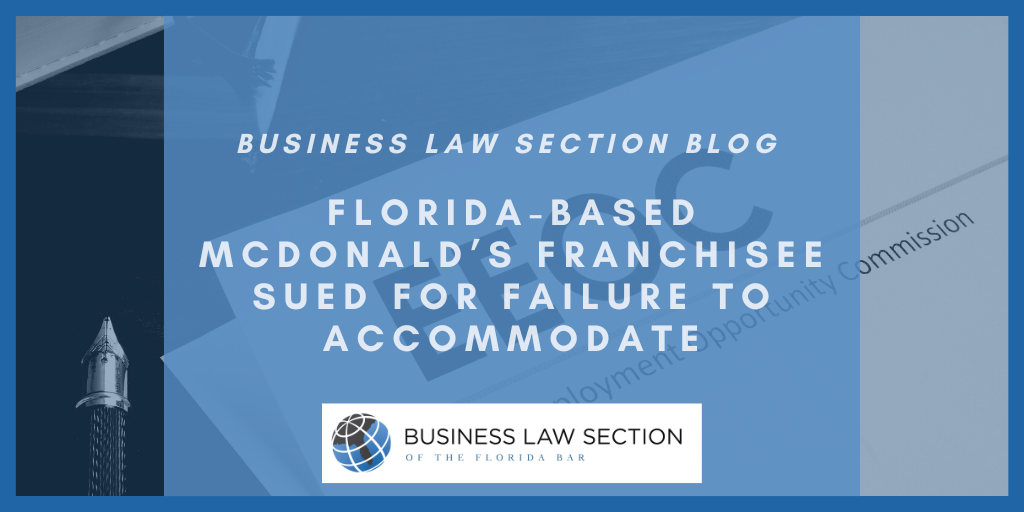By: Deedee Bitran, Esq.
Shutts and Bowen LLP
Last month, the Equal Employment Opportunity Commission (“EEOC”) sued a Florida-based McDonald’s franchisee (Houcorp, Inc.) for allegedly failing to accommodate a deaf job applicant under the Americans with Disabilities Act (“ADA”). The Complaint alleges that a job applicant who is hard of hearing requested and was denied an American Sign Language (“ASL”) interpreter at her job orientation.
Complaints under the ADA are first filed with the EEOC as a charge and individuals may file a lawsuit in federal court only after they receive a “right-to-sue” letter from the EEOC. Prior to the Complaint being filed against the Florida-based McDonald’s franchisee, the job applicant filed a charge of discrimination with the EEOC, and the EEOC later found reasonable cause to believe the defendant discriminated against the job applicant. The EEOC’s complaint, filed on June 30, 2023, seeks compensatory and punitive damages. The case number is 9:23-cv-80985-XXXX filed in the Southern District of Florida.
This case serves as a local reminder to Florida employers to understand and abide by the ADA, and sufficiently train management personnel to engage in the interactive process when faced with accommodations requests. Employers with at least 15 employees are subject to the ADA. In January 2023, the EEOC released an updated resource document, “Hearing Disabilities in the Workplace and the Americans with Disabilities Act” (“Resource Update”) which explains how the ADA applies to job applicants and employees who are deaf or hard of hearing or have other hearing conditions.
The ADA protects individuals with disabilities and individuals who have a relationship or association with an individual with a disability. An individual is considered to have a “disability” under the ADA if he or she has a physical or mental impairment that substantially limits one or more major life activities, has a record of such an impairment, or is regarded as having such an impairment. The ADA prohibits discrimination in recruitment, hiring, promotions, training, pay, social activities, and other privileges of employment.
The ADA requires that employers reasonably accommodate known physical or mental limitations of otherwise qualified individuals with disabilities, unless such an accommodation would result in undue hardship. When faced with a sign language interpreter request as a form of an accommodation, employers should engage in the interactive process under the ADA. The official website for the ADA explains: “The length, importance, or complexity of the communication will help determine whether an interpreter is necessary for effective communication.”
Employers should promptly review the Resource Update to ensure continued compliance with the ADA and consult their trusted employment law counsel for advice or clarification.

